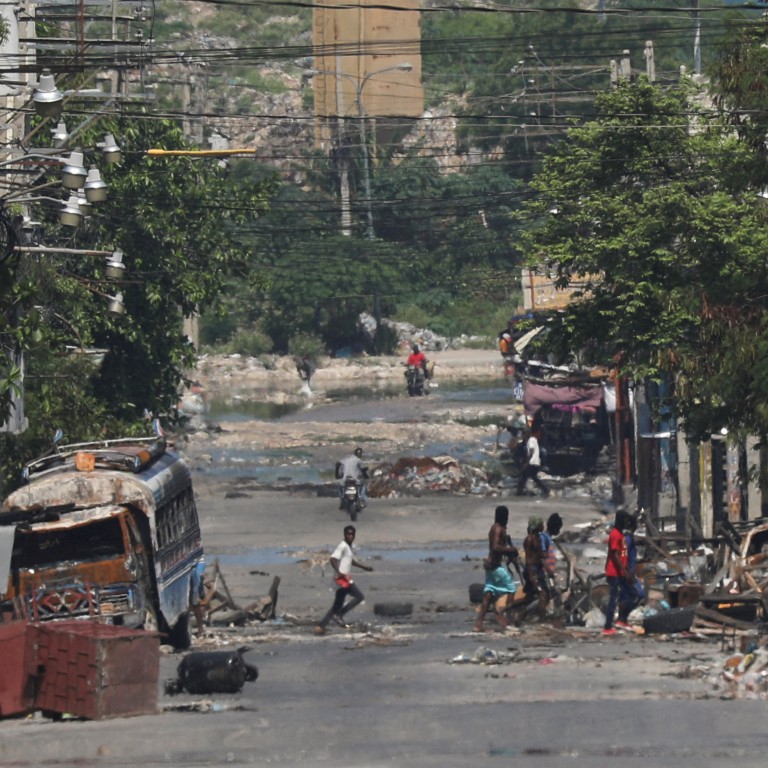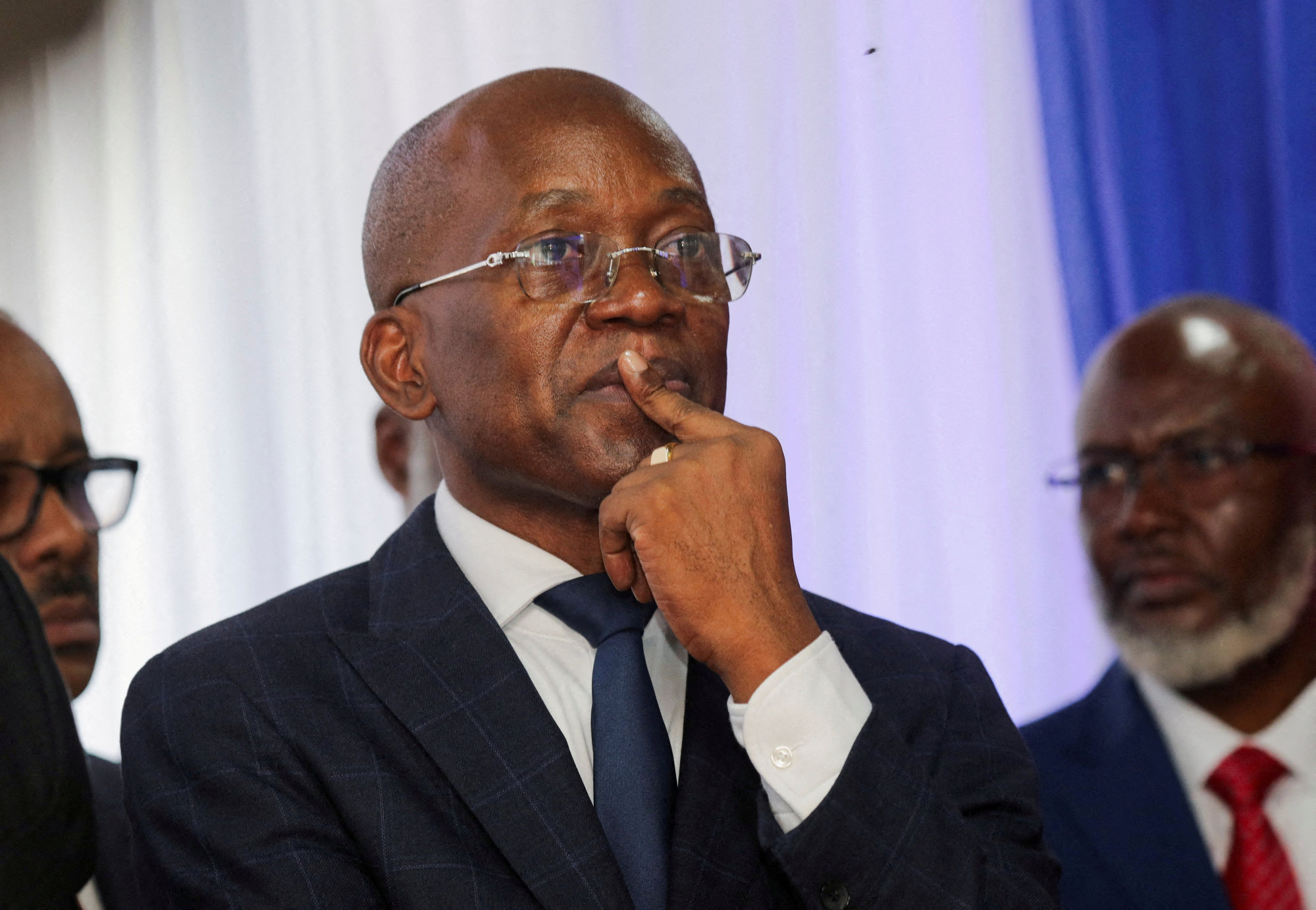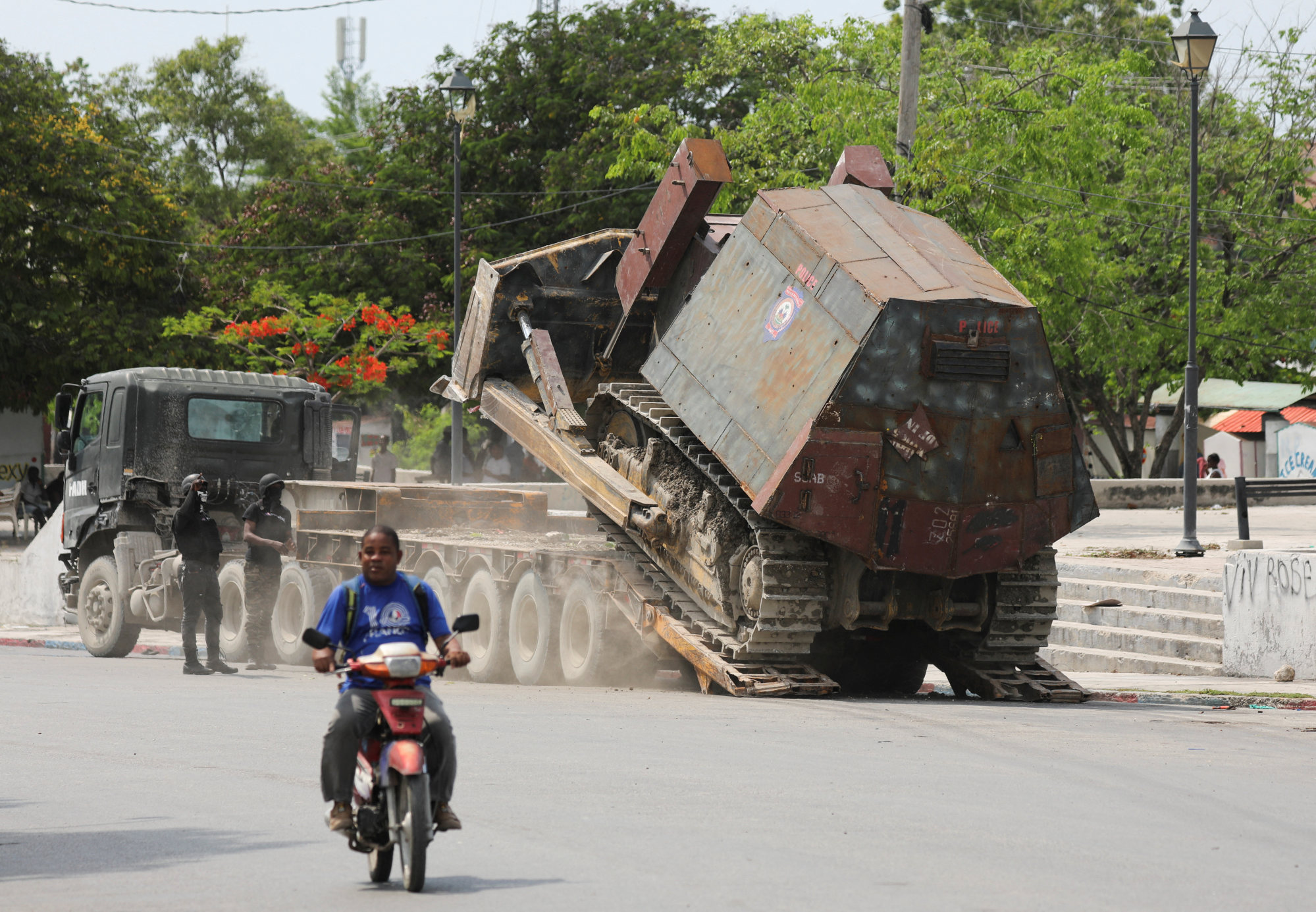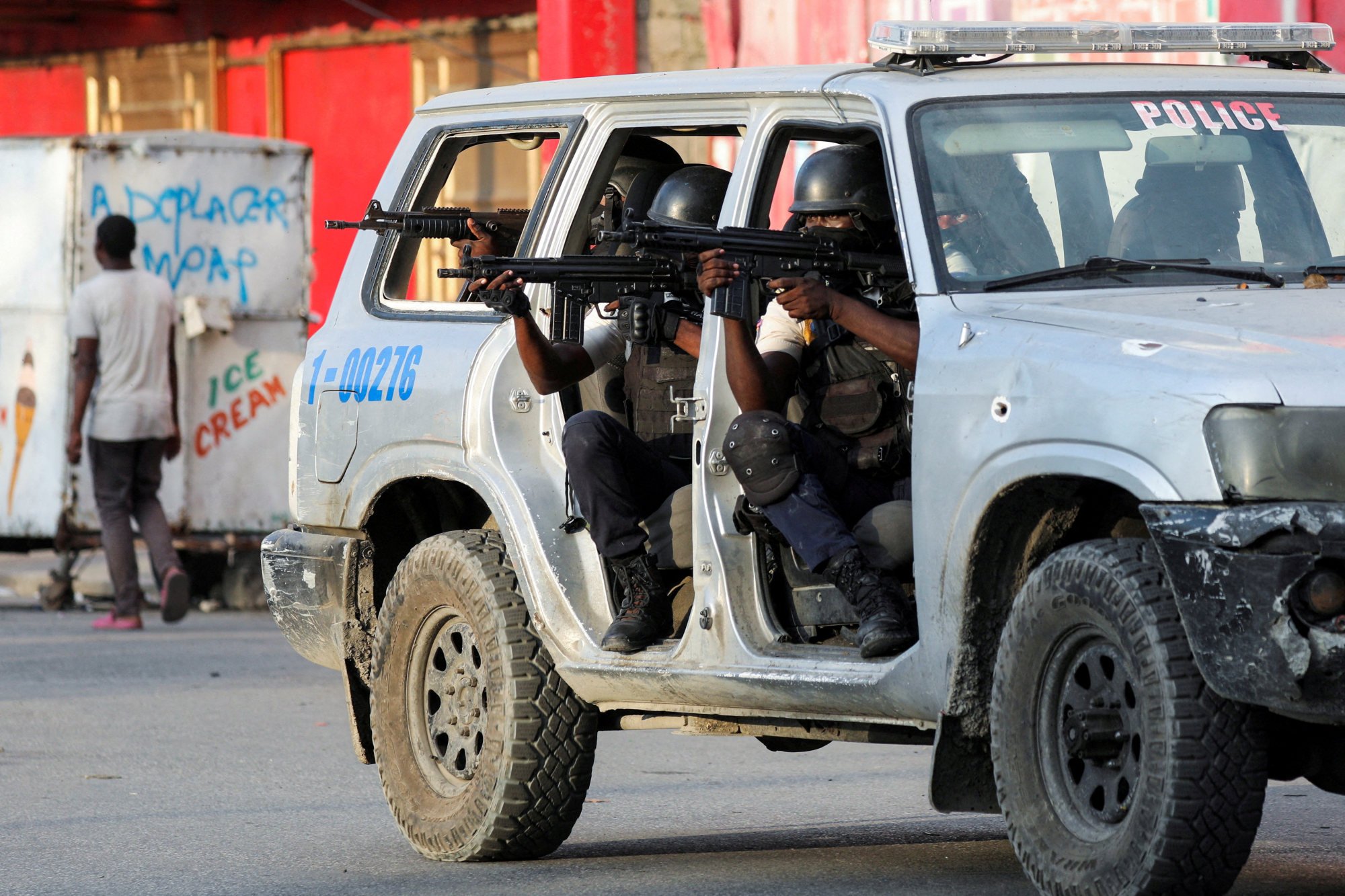
Haiti crisis: transitional government takes power as gangs hold capital ‘hostage’
- Transitional council is tasked with bringing political stability to gang-riven Haiti
- Spiralling violence has killed thousands in the impoverished Caribbean country
Haiti’s transition council took power in a ceremony on Thursday, formalising the resignation of former prime minster Ariel Henry as the Caribbean country seeks to establish security after years of gang violence wreaking chaos and misery.
Henry’s finance minister, Michel Patrick Boisvert, will be interim prime minister until the transition council appoints a new head of government, a cabinet and a provisional electoral council set to pave the way for an eventual vote.
“Today is an important day in the life of our dear republic, this day in effect opens a view to a solution,” Boisvert said after the nine-person transition council were sworn in on Thursday.
Regine Abraham, a non-voting council member, thanked Haiti’s security forces and international mediators, and said the council would focus on security, a national consultation on constitutional reform, preparing for elections, rebuilding the judiciary system and the economy.

“We are seeing the total collapse of our institutions and failure of a government,” she said.
Port-au-Prince residents have “literally been taken hostage,” she added. “Facing this unprecedented crisis, the entire population has recognised the urgent need of a firm hand to take us out of this spiral of despair and destruction.”
Unicef head says Haiti situation nears chaos of Mad Max
Even as the council was sworn in, local media reported houses being set on fire and shooting in the capital’s downtown and Delmas areas, posting photos of columns of grey smoke rising above the skyline and videos of families leaving the area with their belongings.
Armed gangs, equipped with weapons trafficked largely from the United States, have for years tightened their grip on the capital and sought to topple Henry. Since he pledged to resign last month, they have called for a broader “revolution”.
Earlier this week, gang leader Jimmy “Barbeque” Cherizier warned members of the transition council to “brace” themselves.
Unverified voice recordings circulated on social media over the weekend in which Cherizier appeared to order his soldiers to indiscriminately burn houses in Lower Delmas, an impoverished part of the capital where he grew up.
At the ceremony, hosted amid tight security at the prime minister’s Villa d’Accueil office, Boisvert and members of the transition council were flanked by top police and military officials.
Henry announced last month he would resign once the council was in place, initially expected to happen within a couple of days but delayed amid disagreements as to who should sit on it.

Henry had left Haiti in late February seeking support for the country’s outgunned police, but was left stranded in Puerto Rico as the gangs threatened to completely take over the capital. Boisvert has served as acting prime minister in Henry’s absence.
The transitional government’s mandate runs until February 2026, by when there are slated to be elections, and cannot be renewed. No date has been set for its naming of a new prime minister or council president.
Diego Da Rin, an analyst with the International Crisis Group, warned of tensions within the council as different factions jostled for power, and a “long and rocky road ahead.”
Local organisation Together Against Corruption (ECC) published a letter calling on the new authorities to be financially transparent to “prove their will to help build a government that breaks with the past”.
The council’s installation is seen as a key step towards the deployment of a multinational security mission Henry requested back in 2022 and the United Nations approved more than six months ago.
Though Kenya offered to lead this mission, plans were put on hold last month pending the establishment of a new Haitian government.

UN Secretary General Antonio Guterres called for the new authorities to implement new governance arrangements swiftly to allow for the mission’s deployment. The mission has received less cash and fewer troops than the UN has said it needs.
According to UN estimates, more than 2,500 people were killed or injured in gang violence from January through March, while hundreds of thousands have been internally displaced and millions are facing catastrophic hunger.
Foreign diplomats hailed the ceremony as an important step to restore security, and Kenyan President William Ruto said the nation stands “ready and willing” with its counterparts to “rapidly execute the security support infrastructure”.
“Kenya assures the Transitional Presidential Council of Haiti of its full support as it shepherds the country through this complex interregnum,” Ruto said on X.
The council members installed were the same as announced last week: seven voting members, all men, including representatives from various political parties as well as former diplomats, a barrister, and a businessman, and two non-voting observers: a pastor and former government adviser.

